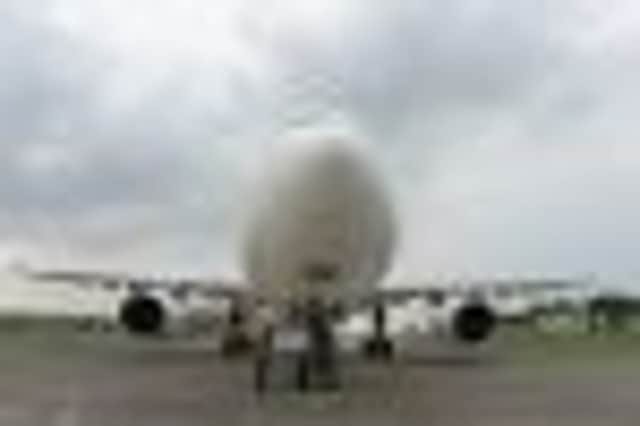‘Climate change to double risk of air turbulence’


• It is said to be the first research examining how aviation turbulence will change in the coming years
• Scientists based their calculations on analysis of super-computer simulations of the atmospheric jet stream over the North Atlantic Ocean
Advertisement
Hide AdAdvertisement
Hide Ad• They found that by the middle of this century the chances of experiencing significant turbulence will increase by between 40 per cent and 170 per cent
Now a new study suggests that air travellers can expect to suffer the consequences as climate change doubles the risk of air turbulence in future.
Evidence of the ironic twist has been found in what is said to be the first research examining how aviation turbulence will change in the coming years.
Scientists at the universities of Reading and East Anglia based their calculations on analysis of super-computer simulations of the atmospheric jet stream over the North Atlantic Ocean.
They found that by the middle of this century the chances of experiencing significant turbulence will increase by between 40 per cent and 170 per cent, with the most likely rise being 100 per cent - doubling the airspace containing significant turbulence at any one time.
The average strength of turbulence will also increase, by between 10 per cent and 40 per cent.
Study co-author Dr Paul Williams, from the University of Reading, said: “Most air passengers will have experienced the uncomfortable feeling of mid-flight air turbulence. Our research suggests that we’ll be seeing the ‘fasten seatbelts’ sign turned on more often in the decades ahead........Aviation is partly responsible for changing the climate in the first place. It is ironic that the climate looks set to exact its revenge by creating a more turbulent atmosphere for flying.”
Warning that turbulence could be deadly in extreme cases he added: “Air turbulence does more than just interrupt the service of in-flight drinks. It injures hundreds of passengers and aircrew every year – sometimes fatally. It also causes delays and damages planes. The total cost to society is about £100 million each year.
Advertisement
Hide AdAdvertisement
Hide Ad“Any increase in turbulence would make flying more uncomfortable and increase the risk to passengers and crew.”
Re-routing flights to avoid the worst turbulence could increase fuel consumption and emissions of atmospheric pollutants, creating a vicious circle.
It could also make delays at airports more common, and ultimately push up ticket prices, he added.
The study, entitled the ‘Intensification of winter transatlantic aviation turbulence in response to climate change’, was published today in the journal Nature Climate Change.